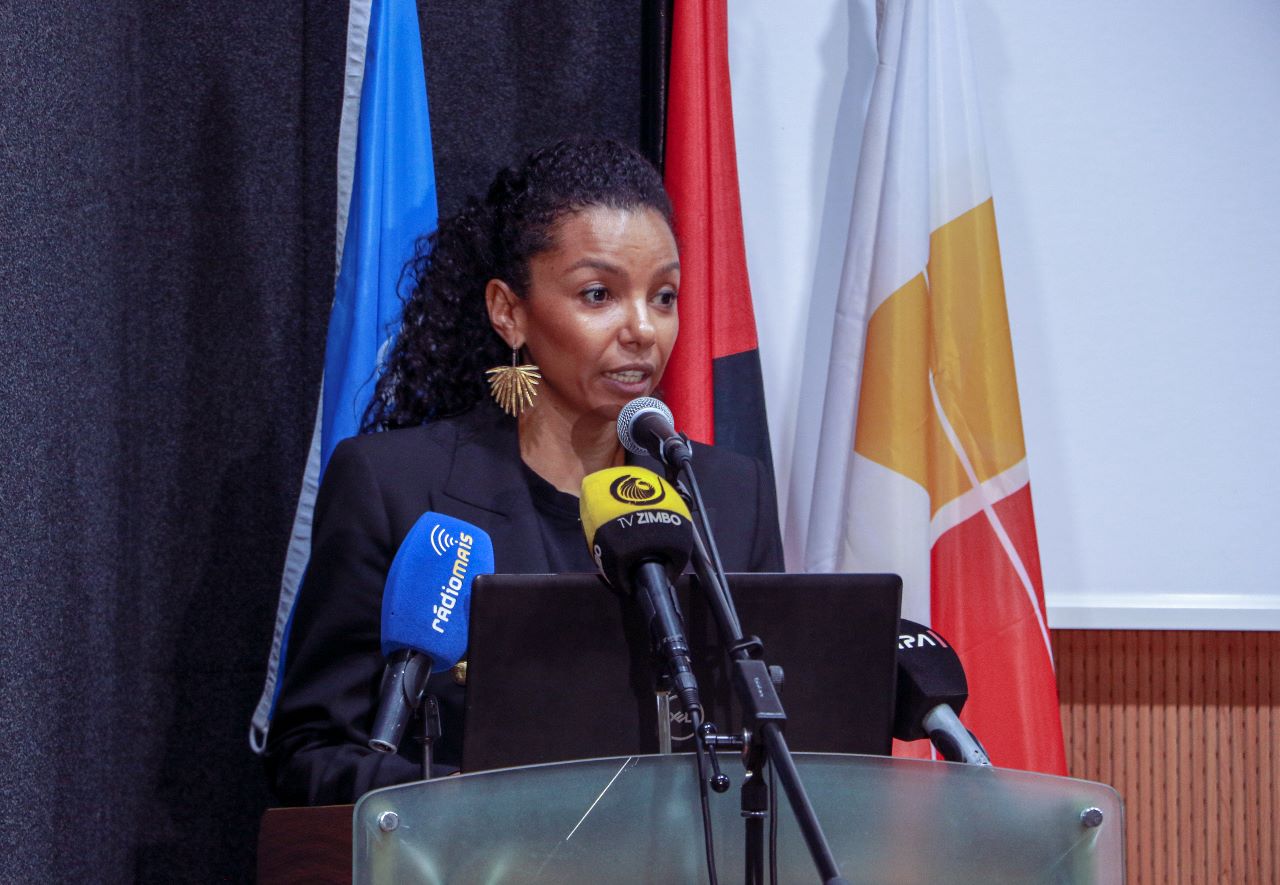
Denise Monteiro presenting study results at the National Institute of Statistics
According to the results presented at the National Institute of Statistics (8 June), the survey found that the restrictions associated with the COVID-19 pandemic negatively affected people working in the informal economy, including the reduction of economic activities and income. It also found that financial inclusion is a challenge for the transition to the formal economy, which implies the need for fostering access to education, financial literacy with banking and financial services and the use of digital tools. Additionally, the capacity of organizations that represent informal workers needs strengthening.
The research highlights the urgency of extending social protection to workers in the informal economy, in particular among women, through reforms of the social security system and constant social dialogue. Workers in the informal economy indicated little knowledge of the social security system and its benefits. Their lack of awareness also contributes to the limited coverage of the system, which then exacerbates the vulnerability of people in the event of economic shocks, particularly women.
Read more about the presentation of the study (in Portuguese) here.
Learn more about SP&PFM in Angola here.
